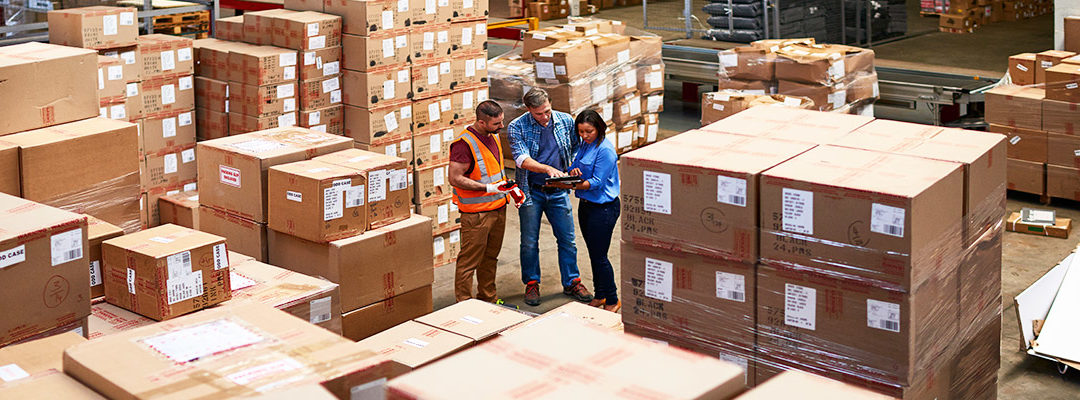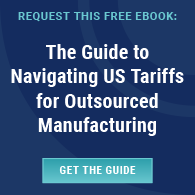As technology advances, the world continues to get smaller and more competitive—and the supply chain shrinks along with it. With that, companies face additional challenges as they look to expand their operations to new borders.
Challenges and complexities with offshoring will prevent many companies from moving forward. However, with an expert partner, this is an opportunity to outperform competing companies.
Let’s review the challenges to understand how they are overcome.
Challenges of a Global Supply Chain
The challenges of globalization might seem overwhelming at first—everything from finding quality factories, decreased visibility and other matters such as legal compliance, tariffs, language, cultural and accountability barriers.
Challenge 1: Finding quality factories
A global market might increase the quantity of factories and manufacturers, but it can be challenging to find the quality you need for your products. Will a factory be a good fit long-term? Do they have the right experience to manufacture your products? Or are they quick to promise without the ability to carry it out—resulting in higher costs or no products at all? It can be harder to find the best fit to consistently deliver high-quality products at competitive costs. When you work with a partner who has overseas experience with existing proven factory relationships, this challenge is overcome.
Challenge 2: Visibility into the supply chain
The more complex your supply chain, the more difficult it is to maintain visibility in the operations. This challenge keeps many from expanding globally, but it is rapidly becoming less significant because of resources like technology and partnerships. Working with a partner who prioritizes visibility and communicates clearly can help companies manage their supply chain at every point.
Challenge 3: Compliance
Crossing borders can increase complexity regarding laws, compliance and cultural issues. It means handling everything from trade compliance, customs, safety, foreign exchange rates, language barriers, time zones and social compliance. When you work with a partner who has an excellent track record of compliance, these complexities are handled for you.
Advantages of Globalization in Supply Chain
While the challenges and costs of globalization are real, the right partners in a global supply chain can support you by bringing long-term benefits through an optimized supply chain.
You’re not limited by domestic factories or rates—you can find the best products at the lowest cost. As your operations expand globally, so will your production and your sales. It gives your company the opportunity to grow in ways you couldn’t if you are limited by US borders.
It also provides the opportunity to find the best manufacturer for your business. By finding the right fit, you can increase the cost savings and quality options for your business. A larger pool of suppliers means increased competition, which means a better deal for your company.
But globalization doesn’t just increase margin; it also provides more stability for your business by not working exclusively in a few factories or a specific country. Many internal sourcing teams, which tend to be overworked, have worked in a specific country such as China. They might have good relationships built over that time in China, yet it presents a problem when external factors such as natural disasters or foreign policies affect the region or factory they are doing business in.
The value of diversification shows with the Section 301 tariffs on China. If a company’s products are sourced exclusively from China, they will face an increase in costs and be open to additional risk as the political climate between USA and China is uncertain.
That’s where diversification comes in. You can maintain existing relationships but work to protect against external risk by adding to those relationships. Managing both existing and new relationships can be a lot for an internal team to handle—that’s where a reliable partnership comes in. It allows you to focus on your expertise and puts the responsibility of globalization on someone who specializes in the big picture and has global factory relationships as well as local resources in multiple global markets.
As the world continues to get smaller and smaller, will you tackle the challenges of globalization? Find a partner who can be your go-to resource for sourcing and manufacturing your goods around the world. The challenges are worth the opportunity for companies who can effectively manage the global supply chain with a partner.
As you look to globalize your supply chain, learn how Altraco can help by contacting us or requesting a quote.

Al is an entrepreneur, founder, and owner of multiple businesses, including Altraco, an outsourcing and contract manufacturing company. Working across multiple continents and trusted by Fortune 500 companies, Al finds innovative solutions to traditional supply chain challenges. He is a member of Vistage Worldwide.



